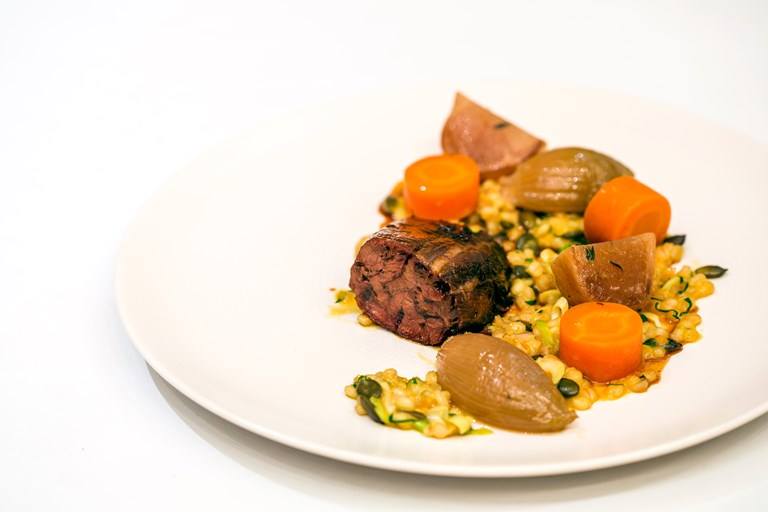
Braised beef shin with pumpkin seed and barley porridge
Alyn Williams serves up a delightful braised beef shin recipe, served with pearl barley and pumpkin seed ÄòporridgeÄô for a comforting dish
Read Recipe
Born in East Ham, London (and a life-long Hammers supporter as a result), Alyn Williams came from a family that celebrated food. His father had a great passion for gardening, and in his two allotments grew all manner of vegetables – peppers, celeriac, purple kohlrabi, every type of bean – things you didn’t typically see growing up in 1970s East London.
His first real kitchen job was working as a kitchen hand in a gentleman’s club in St. James, where he gained more and more responsibility in the small kitchen and quickly graduated to cooking. Catering college followed, including a placement at Claridge’s, where he experienced their 100-strong brigade working section upon section, the hotel operating at its extravagant peak.
His career progressed through various kitchens, working at Les Alouettes in Surrey, under Michel Perraud, as it won a Michelin star – at that time one of only 25 restaurants in Britain with any Michelin recognition. He describes this experience as inspirational, teaching him classical technique, attention to detail and the correct approach to kitchen discipline. Even long into his fantastically successful career, he still considers Perraud one of his greatest mentors. This job was followed by a brief foray into the kitchen of David Everitt-Matthias, at his (now two-star) restaurant, Le Champignon Sauvage.
A long period overseas followed, with Alyn Williams setting aside his culinary career for a life of travel. He describes the time he spent backpacking in India, learning about the country, the people and their food, as a truly life-changing experience.
Returning to the UK in 1996, he took up a position as chef de partie at Teatro under Stuart Gilles, leaving 18 months later as sous chef. A number of stages at The Greenhouse, Zafferano, Chez Bruce and Pétrus came next, with a job under Marcus Wareing at Pétrus offered as a result.
In 2001 he moved to Gordon Ramsay at Claridge’s working for head chef Mark Sargeant during the opening, before taking up a place at Ramsay’s (now three-star) Royal Hospital Road.
After a spell running the kitchen at the Groucho Club, he returned to work with Marcus Wareing at Pétrus (now moved to the Berkeley Hotel), working as head chef when Wareing won his second Michelin star in 2007.
The food he was cooking at Marcus Wareing at the Berkeley – a mix of classic French and British influences – was some of the best being produced in Britain at the time.
In 2011 he opened his own restaurant, Alyn Williams at the Westbury, keen to build his own reputation and cook food that was truly his own. 2012 was a year of career highlights for Alyn Williams, winning a Michelin star after less than a year and scooping National Chef of the Year.
His food is characterised by beautiful concentrations of flavour – from big and bold to just a suggestion – with his treatment of diverse textures showing real flair. Awarding his first star, Michelin says: ‘The cooking is creative and even playful but however elaborately constructed the dish, the combinations of flavours and textures always work.’ The food is very much his own, with his nuanced, individual stamp on every dish. He says he is cooking much more gently now than before, innovating, but without creating for creation’s sake.

Alyn Williams serves up a delightful braised beef shin recipe, served with pearl barley and pumpkin seed ÄòporridgeÄô for a comforting dish
Read Recipe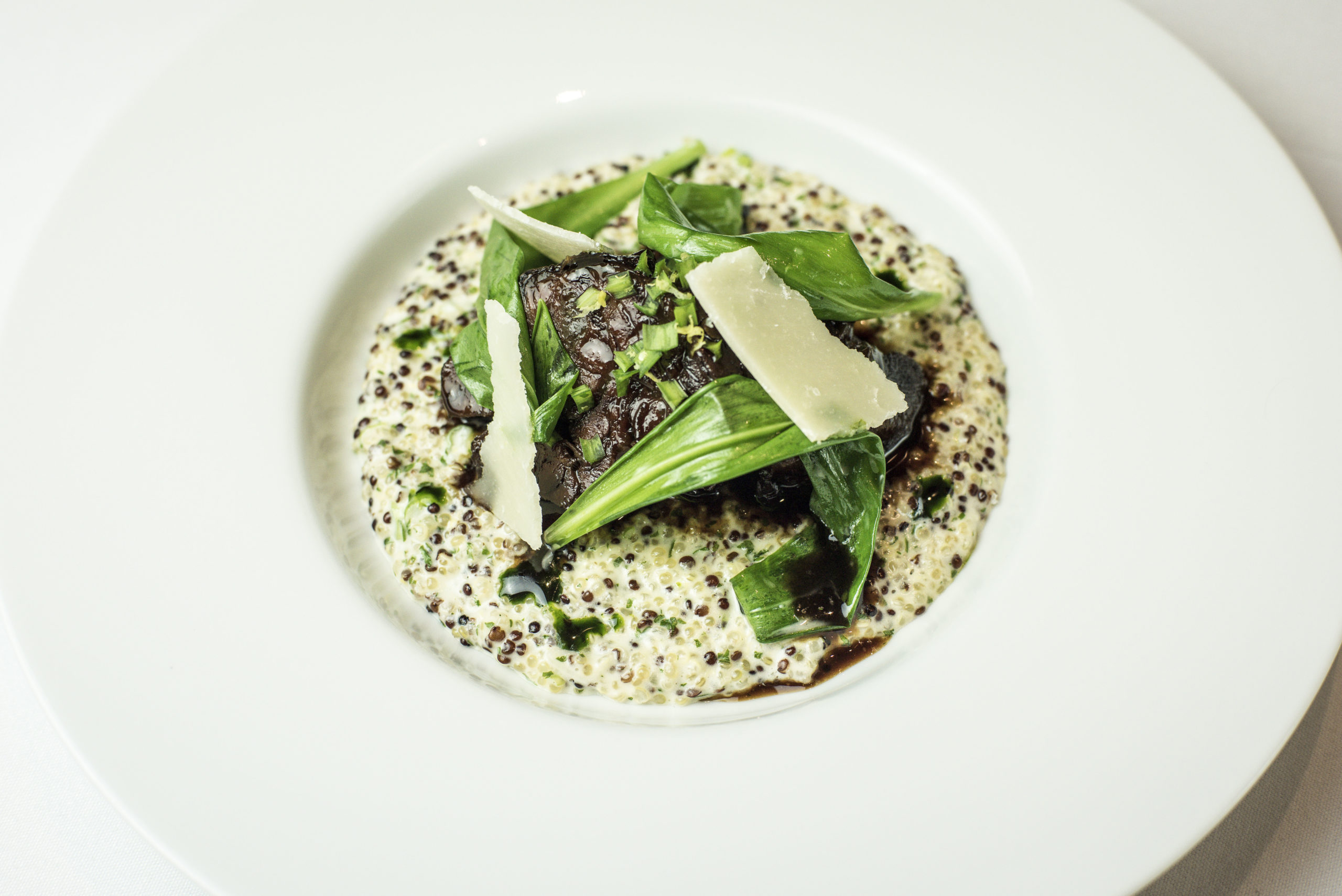
Beef shin is a much underused cut, yet it has fantastic flavour when slow-cooked. Alyn Williams cooks this cut of Irish beef
Read Recipe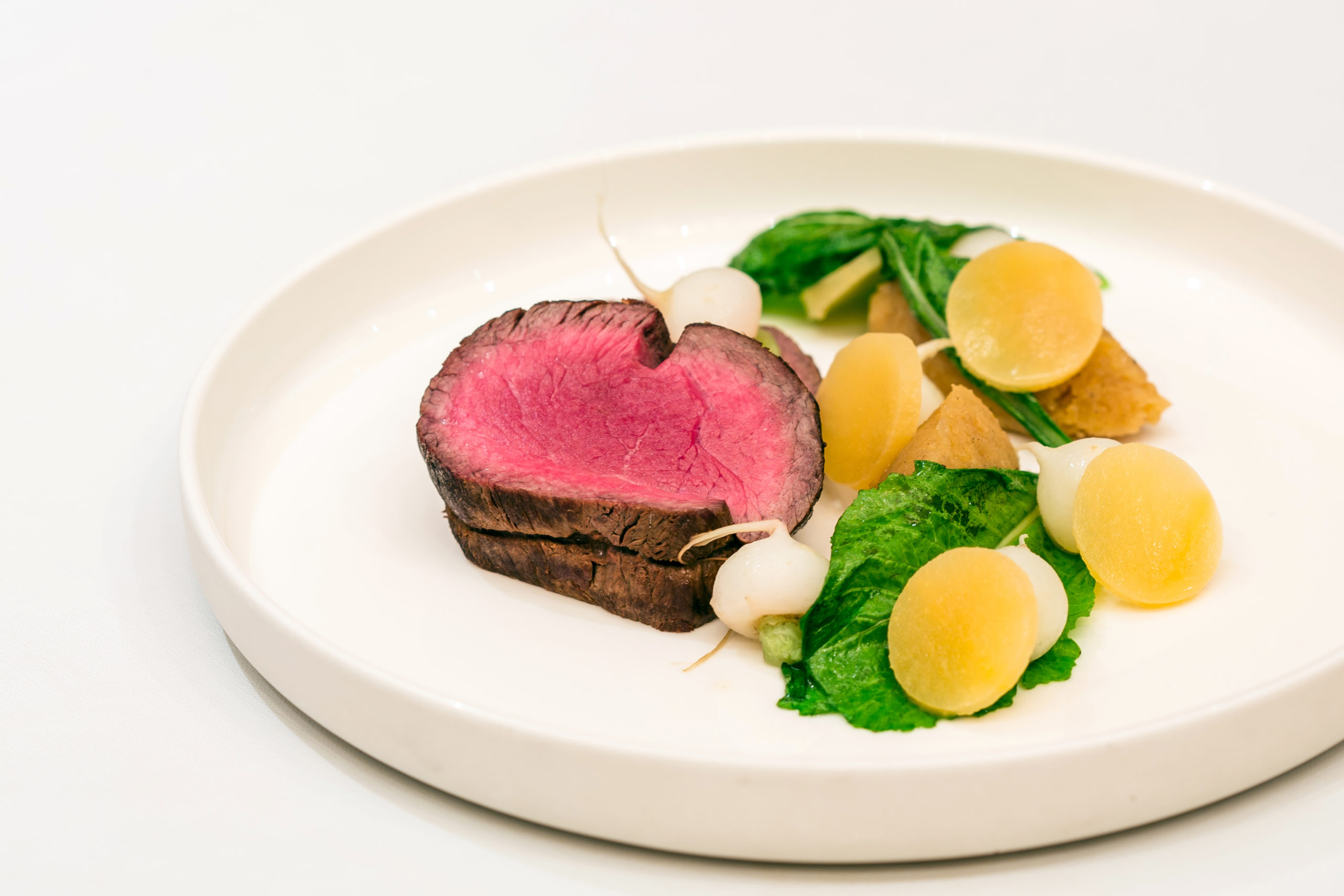
Alyn Williams serves up a stunning pan-roasted Irish chateaubriand recipe. Using this simple method really gets the best out of the beef,
Read Recipe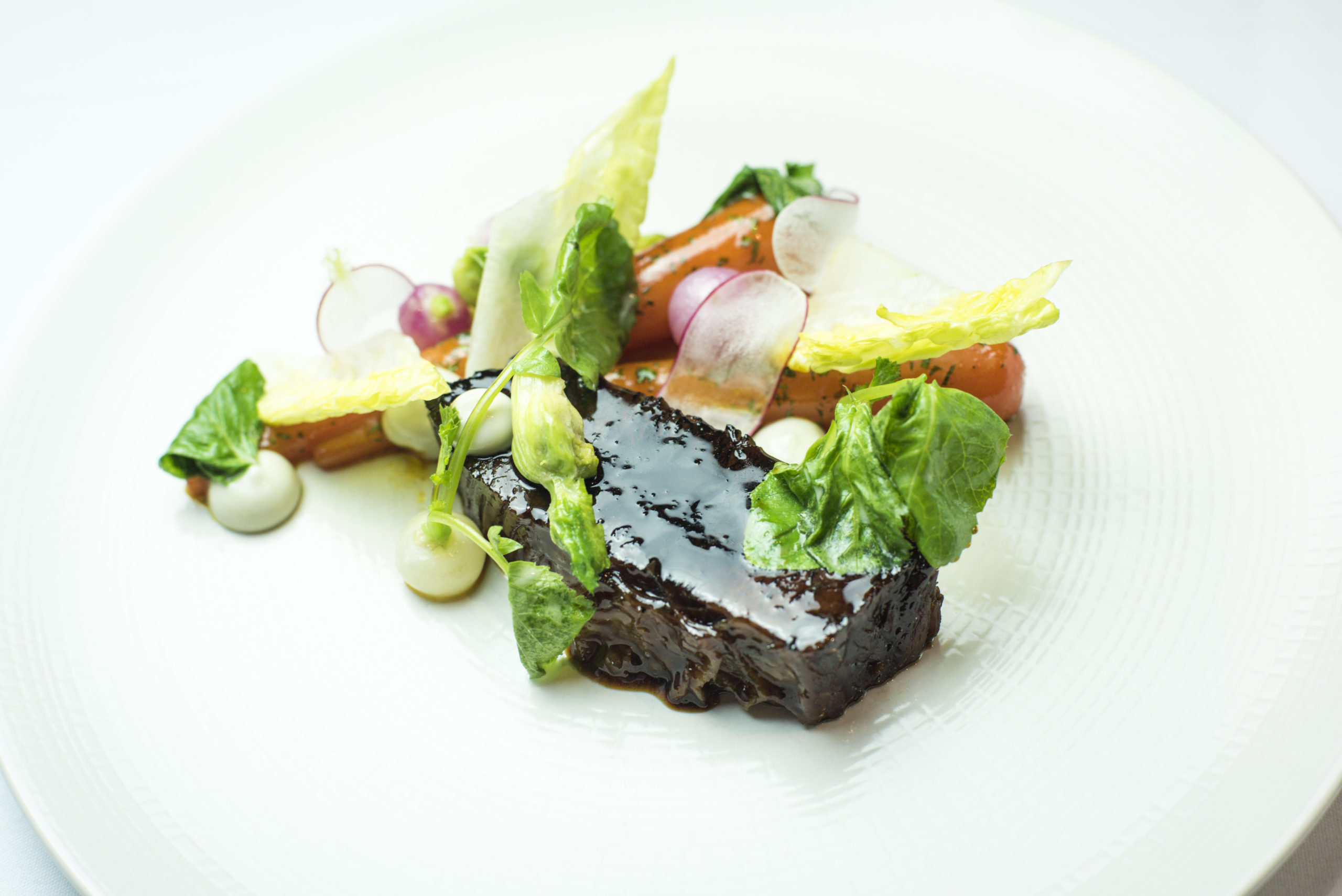
Alyn Williams matches perfectly tender Irish beef brisket with vibrant, buttery vegetables and a salty oyster emulsion in this stunning dish. This
Read Recipe
The Chefs' Irish Beef Club is a global network, exclusively for chefs who are ambassadors for Irish beef. Through high-profile events, the chefs provide positive support and publicity for premium Irish Beef and are invited to Ireland to see the Irish beef production system for themselves.
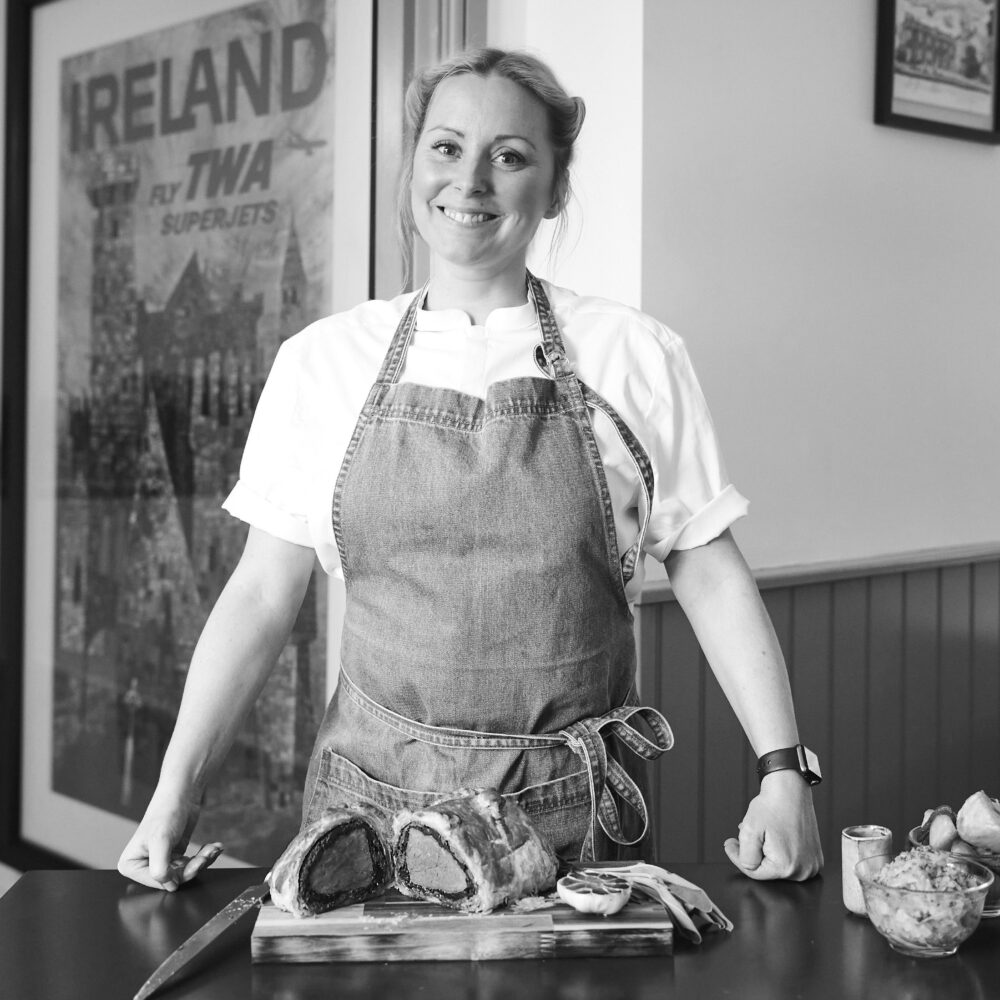
Influenced by her Irish upbringing in Dublin, Anna Haugh has been cooking professionally for 20 years offering Modern European cooking using only the finest Irish produce. Anna’s devotion and determination to championing Irish produce in her food has defined her as a sensational cook throughout her career.
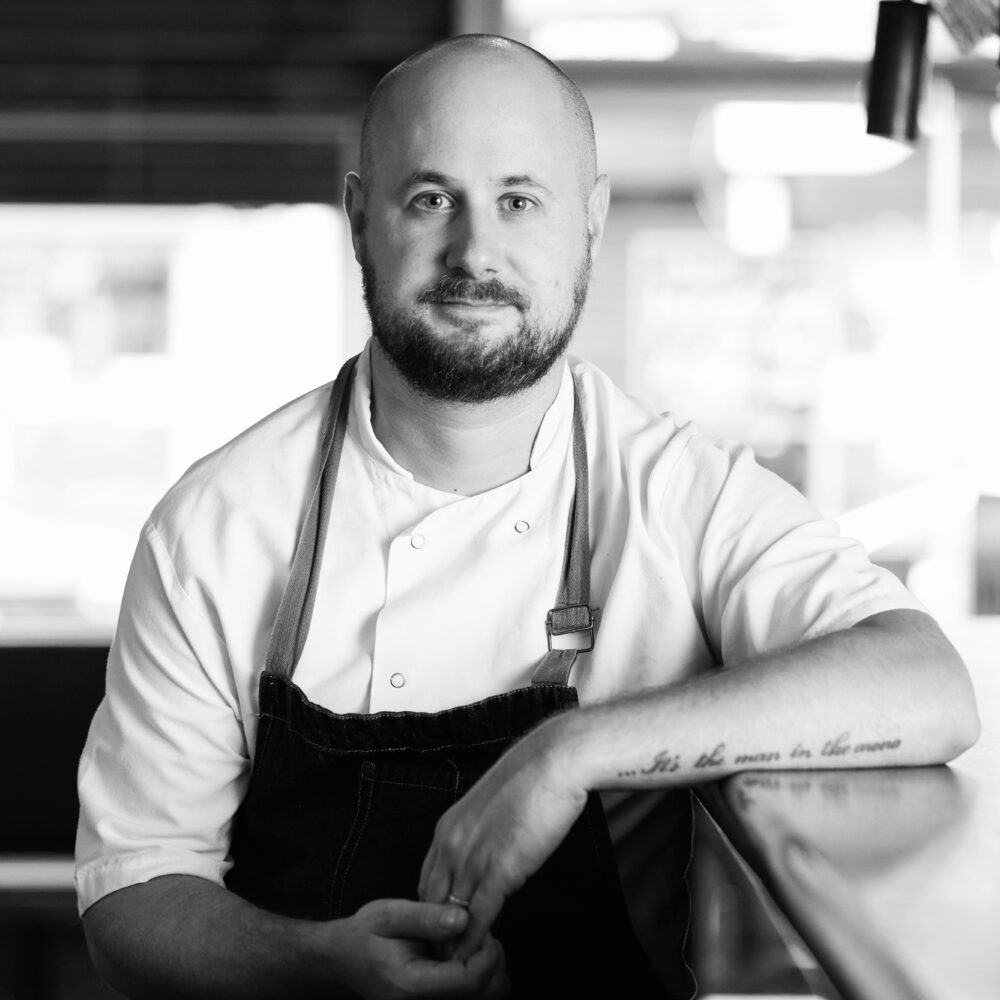
Driven by his pure love of food and his affection for the collaborative nature of the kitchen, Tom Cenci has earned a place as one of London’s most prominent chefs. Having worked alongside some of the greatest and most respected chefs in the industry, Tom pushes culinary boundaries with his eclectic and exciting menus, a reflection of his passion for his craft.
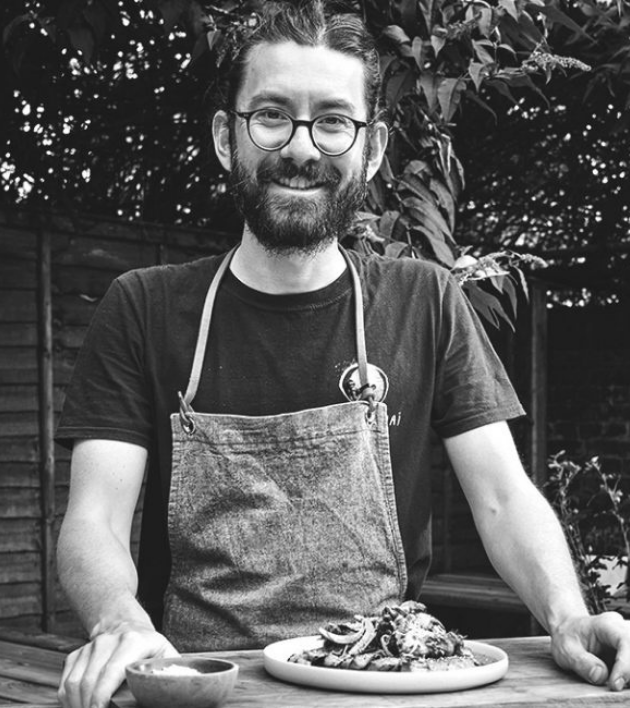
John Chantarasak draws influences from both his Thai and British heritage to create dishes which marry traditional Thai cooking with British flavours. Raised in the Wye Valley in Wales, he trained at the Cordon Bleu in Bangkok before spending some time working at Nahm, at the time rated the best restaurant in Asia.
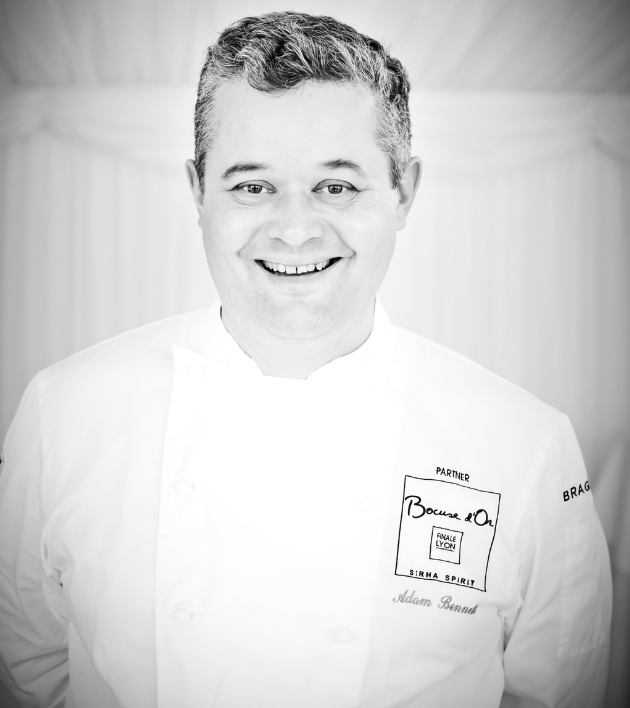
Adam Bennett is beginning to receive the accolades and respect his prodigious talent deserves. After eight years as Head Chef at the vaunted Simpsons, Edgbaston, Coventry-born Adam Bennett became Chef Director at Kenilworth pub The Cross in 2013 – another venture backed by Simpsons supremo Andreas Antona.
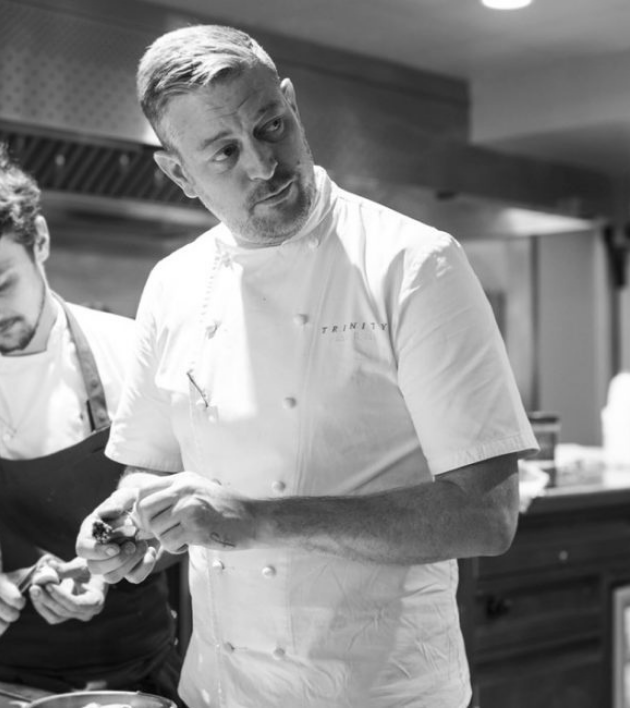
Raised in Rainham, Essex, Adam Byatt was born into a family of food lovers, with a professionally trained mother and an army cook for a grandfather. Always proud of his working class roots, Adam was instilled with a love of food but also an appreciation for the value of hard work. Three days before his sixteenth birthday, Adam won a prestigious apprentice chef placement at Claridge’s from the Savoy Educational Trust. Inside the vast Claridge’s kitchen, Adam began the classical training that would serve as a foundation for his career.
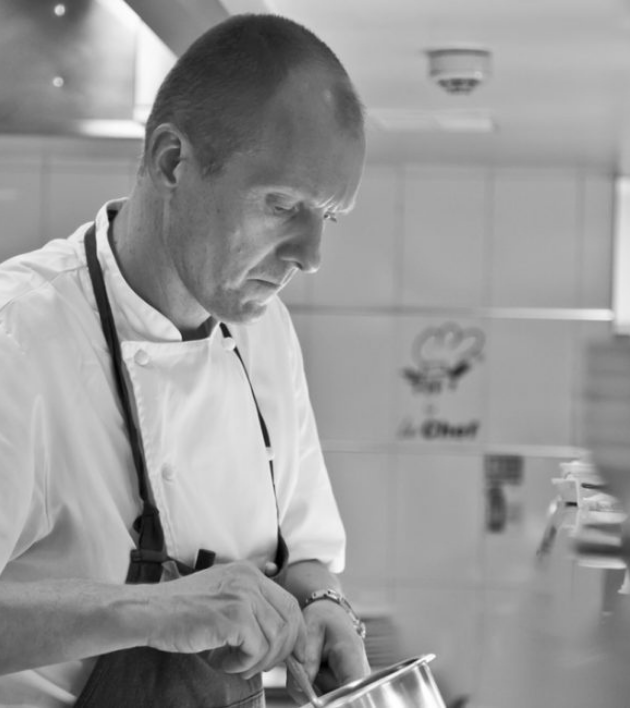
Luke Tipping lived above many restaurants as a child – his father was a chef and his mother was also in the industry. But it wasn’t until his early twenties that he developed a taste for high-end cooking. After what Tipping describes as a ‘misspent youth’, his father arranged a placement in a kitchen for him and he proved to be a quick learner. He enrolled at Halesowen catering college to supplement his placement and began making up for lost time.
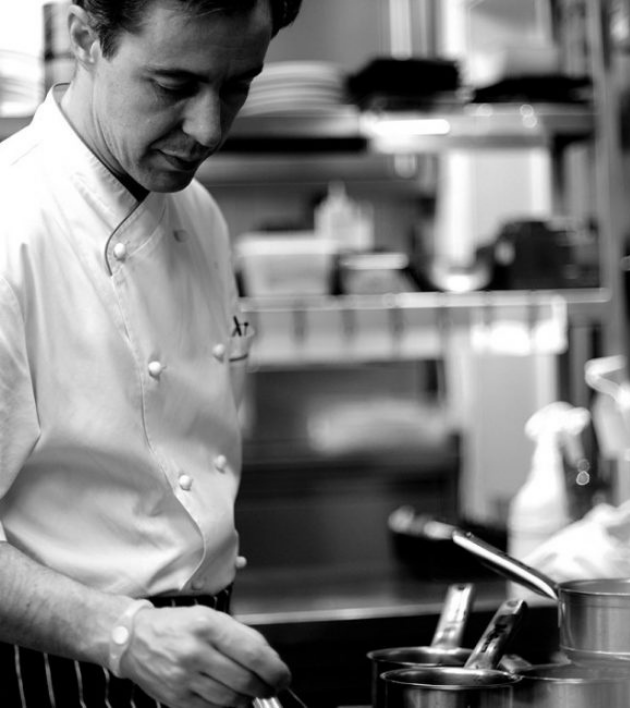
Pascal Aussignac is a chef who – by his own admission – doesn’t do concepts. “I don’t like the word,” he says simply. And he doesn’t “do” ego: “We are just about happiness.” Instead, he is a man of innate pragmatism and tactility who takes the rich, bold and flavourful specialities of Gascony – foie gras, blood sausage, prunes, Armagnac – and reimagines unadorned country cooking into dishes that are interesting and exquisite.
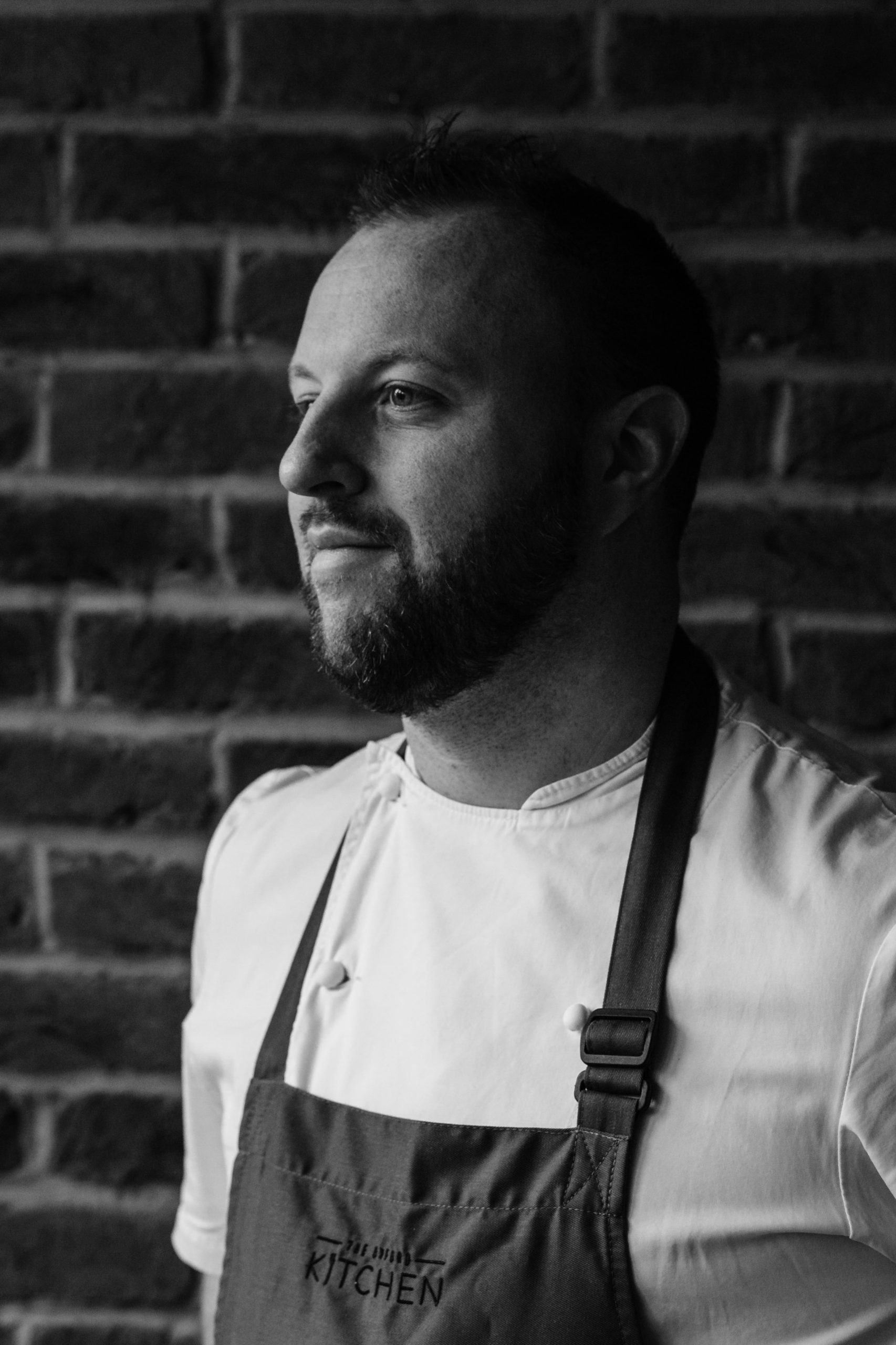
Food as a way to bring people together, over the dinner table, was an important part of life for Paul Welburn as he was growing up: ‘Food was always a social time with my family, being around the table, having a good meal – that sociable, enjoyable moment. That’s where my passion for being a chef started. I would cook meals for people (probably not a high standard in any way!), but I enjoyed seeing their reaction.’ Born and raised in Scarborough, North Yorkshire, he says it was here that he learned the value of working with humble ingredients, of getting the best out of what was available, and of ensuring that no part of an ingredient went to waste.
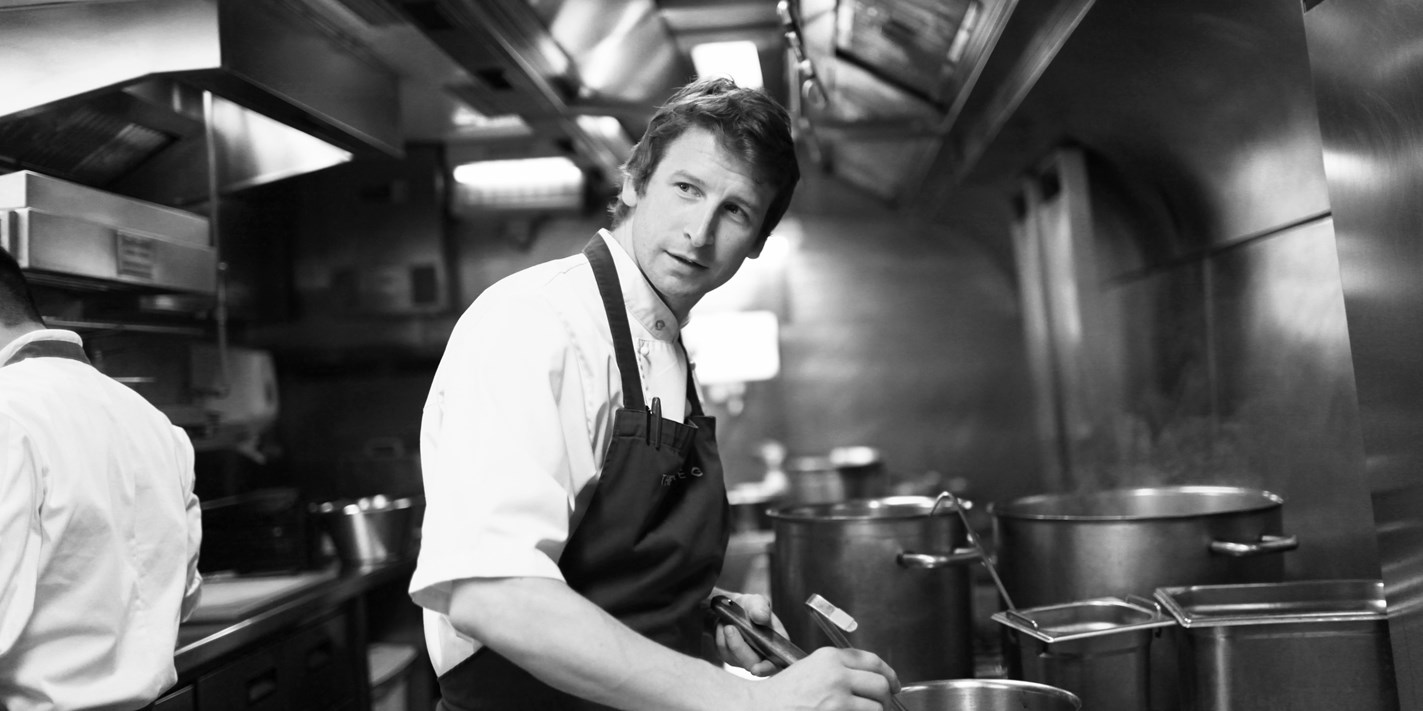
Russell Bateman’s interest in cooking was sparked at an early age. Although there were not an excess of quality restaurants in Hayes, the suburb of West London where he grew up, his grandparents were a strong influence. He remembers the fresh crunch of the vegetables his grandfather grew and the smell of fresh bread his grandmother used to make. His grandfather also brewed his own ale and although Russell Bateman never got to try any, the ceremony of him proudly opening a new batch is a fond memory.
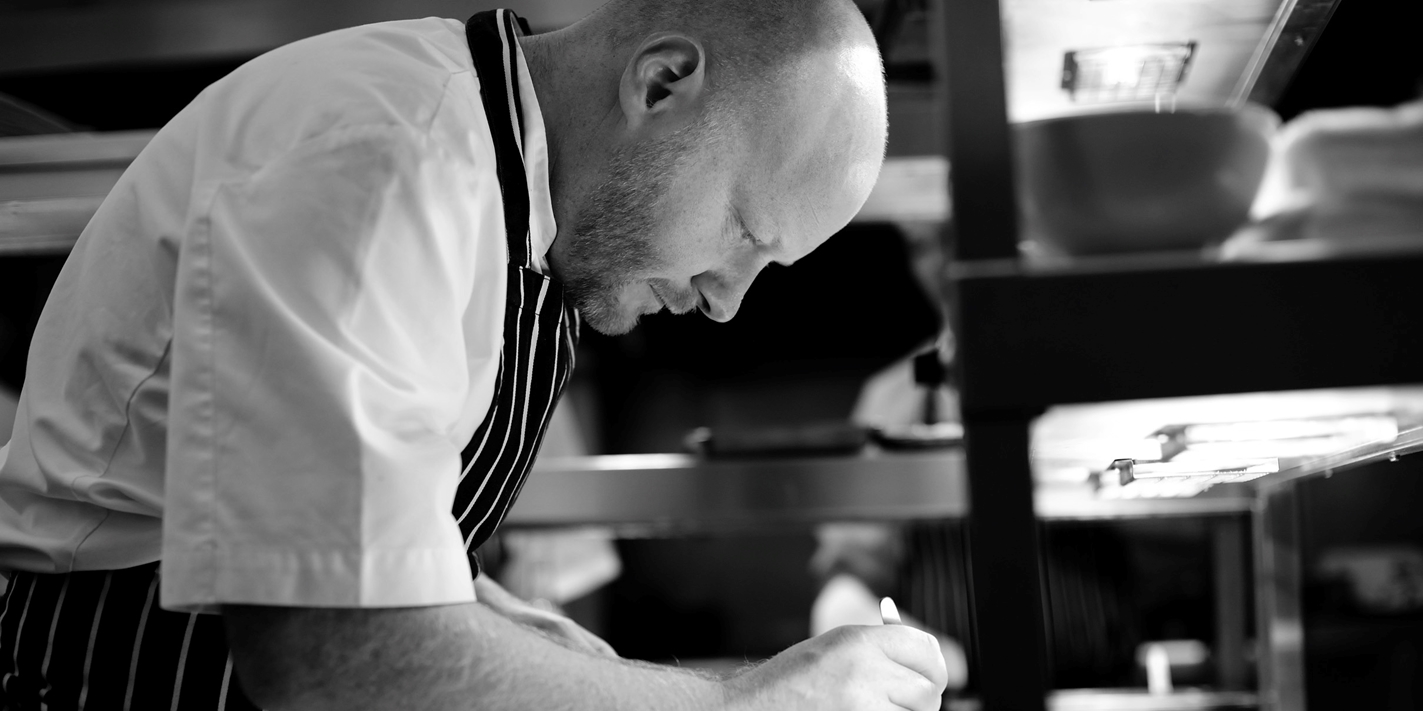
One of England’s young generation of up-and-coming, ultra-talented chefs with Michelin pedigree, Shay Cooper started cooking as a commis chef in 1997, before he was even out of school. Since then he’s worked at Juniper in Altrincham, Stockcross’s The Vineyard, and was named head chef at the Endsleigh Hotel, gaining three AA rosettes for his efforts there.
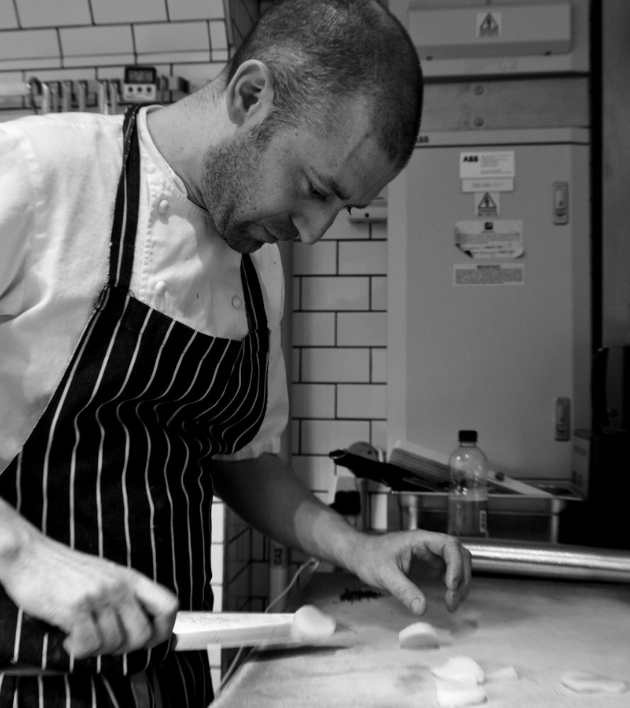
As a young chef, Fleming was influenced by the French classicists – Nico Ladenis, Pierre Koffmann, Anton Mosimann etc. – and still believes it is of prime importance that a chef’s career is built on a solid technique and a regimented precision. Yet he is not inclined either to take food so seriously as to take the joy out of it completely.
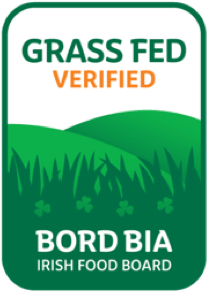
Bord Bia, the Irish Food Board, has introduced a national quality label for grass-fed Irish beef. This so-called Grass Fed Standard provides consumers with reliable information about the origin and living conditions of Irish cattle. The new standard is unique in the world, is strongly based on scientific data and is independently verified.
Subscribe to our newsletter and receive weekly recipes, news and more information on nutrition for you and your family.